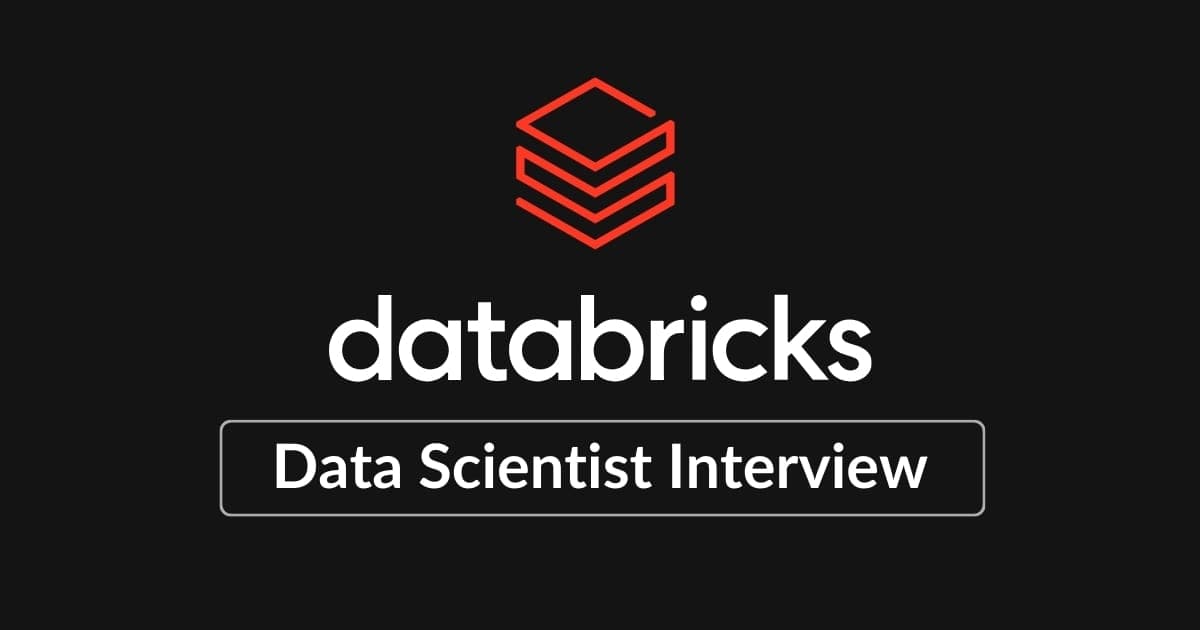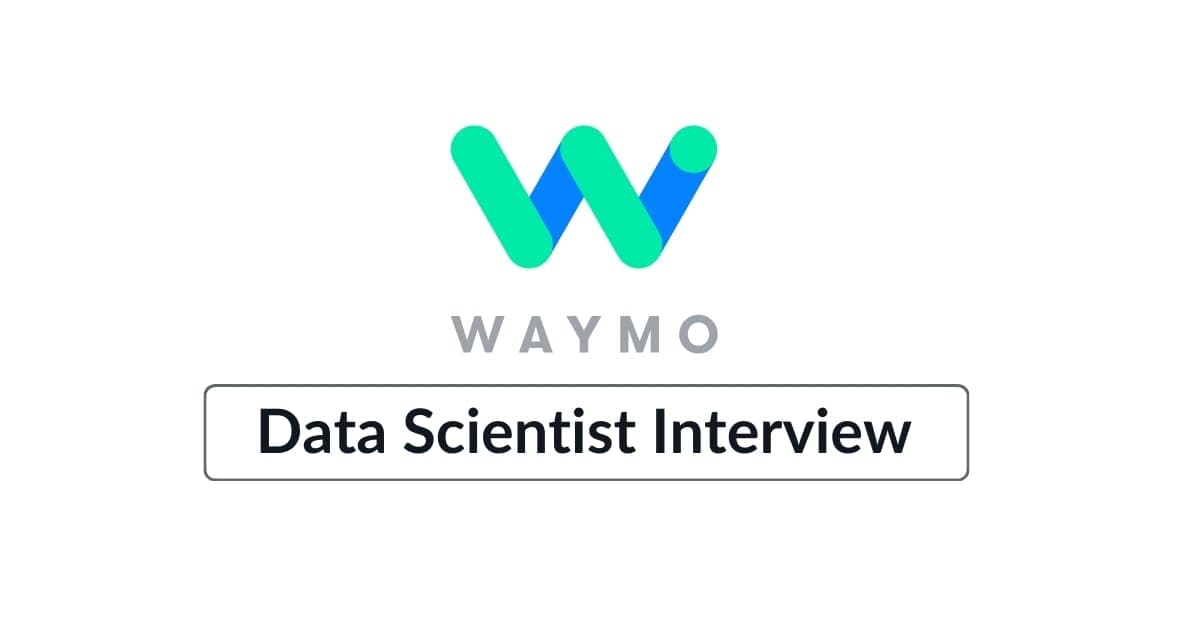Are you preparing for a Data Scientist interview at Databricks? This comprehensive guide will provide you with insights into Databricks’ interview process, essential skills to highlight, and strategies to help you excel.
As a leader in the data and AI space, Databricks seeks talented individuals who can transform complex data into actionable insights. Whether you are an experienced data scientist or looking to advance your career, understanding Databricks’ unique interview approach can give you a significant advantage.
In this blog, we will explore the interview structure, discuss the types of questions you may encounter, and share valuable tips to help you navigate each stage with confidence.
Let’s dive in 👇
1. Databricks Data Scientist Job
1.1 Role Overview
At Databricks, Data Scientists play a pivotal role in transforming business and operational data into actionable insights that drive product innovation and strategic decision-making. This position requires a combination of technical proficiency, analytical skills, and a collaborative mindset to solve complex problems and enhance the Databricks platform. As a Data Scientist at Databricks, you will work closely with cross-functional teams to leverage data science methodologies and deliver impactful solutions.
Key Responsibilities:
- Collaborate with the Data team and various stakeholders, including Product, Customer Success, Engineering, Sales, Marketing, and Finance, to address business challenges using data.
- Apply data science methodologies to real-world data to generate insights and deploy algorithms on the Databricks platform.
- Manage projects from start to finish, including requirements gathering, data exploration, and presenting insights or deploying algorithms in production environments.
- Lead customers on a transformational journey, helping them evaluate and adopt Databricks as part of their strategy.
- Provide mentorship and guidance to other team members, fostering a culture of data-driven decision-making.
Skills and Qualifications:
- Proficiency in SQL and Python for data manipulation and analysis.
- Experience with statistical data analysis and machine learning methods, such as regression, classification, and time series forecasting.
- Strong understanding of big data technologies, including Hadoop, NoSQL, and Apache Spark.
- Ability to work with enterprise customers and drive data-driven business transformation.
- Excellent communication skills to convey complex data insights to stakeholders.
1.2 Compensation and Benefits
Databricks offers a competitive compensation package for Data Scientists, reflecting its commitment to attracting and retaining top talent in the data and AI fields. The compensation structure includes a base salary, performance bonuses, and stock options, along with various benefits that support work-life balance and professional development.
Example Compensation Breakdown by Level:
| Level Name | Total Compensation | Base Salary | Stock (/yr) | Bonus |
|---|---|---|---|---|
| L3 (Data Scientist) | $237K | $148K | $68.5K | $20.6K |
| L4 (Senior Data Scientist) | $236K | $235.6K | NA | NA |
| L5 (Staff Data Scientist) | $833K+ | NA | NA | NA |
Additional Benefits:
- Participation in Databricks' stock programs, including restricted stock units (RSUs).
- Comprehensive medical, dental, and vision coverage.
- Flexible work hours and remote work options to promote work-life balance.
- Professional development opportunities, including training and conferences.
- Generous paid time off and parental leave policies.
Tips for Negotiation:
- Research compensation benchmarks for data scientist roles in your area to understand the market range.
- Consider the total compensation package, which includes stock options, bonuses, and benefits alongside the base salary.
- Highlight your unique skills and experiences during negotiations to maximize your offer.
Databricks' compensation structure is designed to reward innovation, collaboration, and excellence in the data science field. For more details, visit Databricks' careers page.
2. Databricks Data Scientist Interview Process and Timeline
Average Timeline: 4-8 weeks
2.1 Resume Screen
The first stage of the Databricks Data Scientist interview process is a resume review. Recruiters assess your background to ensure it aligns with the job requirements. Given the competitive nature of this step, presenting a strong, tailored resume is crucial.
What Databricks Looks For:
- Proficiency in Python, SQL, and machine learning concepts.
- Experience with large-scale data processing and cloud platforms.
- Projects demonstrating innovation, technical expertise, and collaboration.
Tips for Success:
- Highlight experience with data engineering, machine learning models, and statistical analysis.
- Emphasize projects involving data processing systems and cloud-based solutions.
- Use keywords like "big data," "Apache Spark," and "data-driven insights."
- Tailor your resume to showcase alignment with Databricks' mission of innovation and data science excellence.
Consider a resume review by an expert recruiter who works at FAANG to enhance your application.
2.2 Recruiter Phone Screen (30 Minutes)
In this initial call, the recruiter reviews your background, skills, and motivation for applying to Databricks. They will provide an overview of the interview process and discuss your fit for the Data Scientist role.
Example Questions:
- Can you describe a project where you used data science to solve a complex problem?
- What tools and techniques do you use for data analysis and machine learning?
- How have you contributed to cross-functional team projects?
Prepare a concise summary of your experience, focusing on key accomplishments and technical skills.
2.3 Technical Virtual Interview (1 Hour)
This round evaluates your technical skills and problem-solving abilities. It typically involves coding exercises, SQL questions, and discussions on machine learning concepts.
Focus Areas:
- SQL: Write queries using JOIN, HAVING, GROUP BY, and window functions.
- Coding: Solve exercises in Python, R, or other preferred languages.
- Machine Learning: Discuss concepts like linear regression, random forest, and probability distributions.
Preparation Tips:
Practice SQL queries and coding challenges on platforms like LeetCode. Consider technical interview coaching by an expert coach who works at FAANG for personalized guidance.
2.4 Onsite Interview Rounds
The onsite interview typically consists of multiple rounds with data scientists, managers, and cross-functional partners. Each round is designed to assess specific competencies.
Key Components:
- Coding Challenges: Solve exercises that test your ability to manipulate and analyze data effectively.
- Technical Discussions: Address complex scenarios involving machine learning models and data science fundamentals.
- Project Discussions: Discuss previous project challenges and implementations.
- Behavioral Interviews: Discuss past projects, collaboration, and adaptability to demonstrate cultural alignment with Databricks.
Preparation Tips:
- Review core data science topics, including statistical tests and machine learning algorithms.
- Research Databricks' products and services, and think about how data science could enhance them.
- Practice structured and clear communication of your solutions, emphasizing actionable insights.
For Personalized Guidance:
Consider mock interviews or coaching sessions to simulate the experience and receive tailored feedback. This can help you fine-tune your responses and build confidence.
Databricks Data Scientist Interview Questions
Probability & Statistics Questions
Probability and statistics questions assess your understanding of statistical concepts and your ability to apply them to real-world data problems.
Example Questions:
- Is this a fair coin?
- What is the probability that a user has exactly 0 impressions?
- How would you determine if a two-sided coin is biased?
- What is the probability that a user views more than 10 ads a day?
- What considerations should be made when testing hundreds of hypotheses with many t-tests?
For a deeper understanding of statistics, check out the Applied Statistics Course.
Machine Learning Questions
Machine learning questions evaluate your knowledge of algorithms, model building, and problem-solving techniques applicable to Databricks’ data-driven environment.
Example Questions:
- Explain the bias-variance tradeoff and how it applies to building a predictive model.
- How would you build a model to bid on a new unseen keyword using a given dataset?
- How would you build a fraud detection model with a text messaging service for transaction approval?
- Describe your experience with machine learning libraries like TensorFlow, PyTorch, or scikit-learn.
- How do you integrate machine learning frameworks with Databricks?
Enhance your machine learning skills with the Machine Learning Course.
SQL Questions
SQL questions assess your ability to manipulate and analyze data using complex queries. Below are example tables Databricks might use during the SQL round of the interview:
Users Table:
| UserID | UserName | JoinDate |
|---|---|---|
| 1 | Alice | 2023-01-01 |
| 2 | Bob | 2023-02-01 |
| 3 | Carol | 2023-03-01 |
Transactions Table:
| TransactionID | UserID | Amount | TransactionDate |
|---|---|---|---|
| 101 | 1 | 150.00 | 2023-01-15 |
| 102 | 2 | 200.00 | 2023-02-20 |
| 103 | 3 | 350.00 | 2023-03-25 |
Example Questions:
- Total Transactions: Write a query to calculate the total transaction amount for each user.
- Recent Transactions: Write a query to find users who made transactions in the last 30 days.
- Average Transaction: Write a query to determine the average transaction amount per user.
- Join Date Analysis: Write a query to list users who joined before February 2023 and have made transactions.
- Transaction Count: Write a query to count the number of transactions each user has made.
Practice SQL queries on the DataInterview SQL pad.
Business Case Studies Questions
Business case studies questions assess your ability to analyze business problems and propose data-driven solutions.
Example Questions:
- Why has the number of job applicants been decreasing despite stable job postings?
- What metrics would you use to track the accuracy and validity of a spam classifier for emails?
- How would you approach a business problem where the goal is to increase user engagement on a platform?
- What factors would you consider when evaluating the success of a new product launch?
- How would you design an experiment to test the impact of a new feature on user retention?
Learn how to tackle business cases with the Case in Point Course.
4. How to Prepare for the Databricks Data Scientist Interview
4.1 Understand Databricks' Business Model and Products
To excel in open-ended case studies at Databricks, it's crucial to understand their business model and product offerings. Databricks is a leader in unified data analytics, providing a platform that combines data engineering, data science, and machine learning.
Key Areas to Understand:
- Unified Data Platform: How Databricks integrates data engineering, data science, and machine learning into a single platform.
- Customer Solutions: The role of data science in driving customer success and innovation on the Databricks platform.
- Product Offerings: Familiarize yourself with products like Delta Lake, MLflow, and Apache Spark.
Understanding these aspects will provide context for tackling business case questions, such as proposing data-driven strategies to enhance Databricks' platform capabilities.
4.2 Master Technical Skills
Technical proficiency is essential for success in Databricks' data science interviews. Focus on SQL, Python, and machine learning concepts.
Key Focus Areas:
- SQL Skills: Practice complex queries using JOIN, GROUP BY, and window functions.
- Python Skills: Enhance your data manipulation skills with libraries like pandas and NumPy.
- Machine Learning: Brush up on algorithms such as regression, classification, and time series forecasting.
Consider enrolling in a Data Scientist Interview Bootcamp for comprehensive preparation.
4.3 Align with Databricks' Mission and Values
Databricks values innovation, collaboration, and data-driven decision-making. Aligning your preparation with these values is key to showcasing your cultural fit during interviews.
Core Values:
- Innovation and excellence in data science and AI.
- Collaboration across diverse teams and disciplines.
- Commitment to customer success and data-driven insights.
Showcase Your Fit:
Reflect on your experiences where you:
- Used data to drive innovation and customer success.
- Collaborated effectively with cross-functional teams.
- Demonstrated a commitment to data-driven decision-making.
4.4 Practice Problem-Solving and Communication
Databricks interviews emphasize problem-solving and clear communication. Practice structuring your solutions and articulating your thought process.
Preparation Tips:
- Engage in coding challenges and SQL exercises on platforms like LeetCode.
- Practice explaining your logic and optimization strategies during mock interviews.
- Consider coaching services for personalized feedback and guidance.
4.5 Familiarize with Big Data Technologies
Databricks leverages big data technologies like Apache Spark and Hadoop. Understanding these technologies is crucial for technical discussions.
Key Technologies:
- Apache Spark: Understand its role in data processing and analytics.
- Hadoop and NoSQL: Familiarize yourself with their applications in big data environments.
These technologies are integral to Databricks' platform, and proficiency in them will enhance your technical discussions during interviews.
5. FAQ
- What is the typical interview process for a Data Scientist at Databricks?
The interview process generally includes a resume screen, a recruiter phone screen, a technical virtual interview, and onsite interview rounds. The entire process typically spans 4-8 weeks. - What skills are essential for a Data Scientist role at Databricks?
Key skills include proficiency in SQL and Python, experience with machine learning algorithms, a strong understanding of big data technologies like Apache Spark, and the ability to communicate complex data insights effectively. - How can I prepare for the technical interviews?
Focus on practicing SQL queries, coding challenges in Python, and reviewing machine learning concepts. Familiarize yourself with big data technologies and be prepared to discuss how you would apply data science methodologies to real-world problems. - What should I highlight in my resume for Databricks?
Emphasize your experience with data manipulation, machine learning projects, and collaboration with cross-functional teams. Tailor your resume to showcase your technical skills and any innovative projects that align with Databricks' mission of driving data-driven insights. - How does Databricks evaluate candidates during interviews?
Candidates are assessed on their technical skills, problem-solving abilities, and cultural fit. The interviewers will look for evidence of collaboration, innovation, and a strong understanding of data science principles. - What is Databricks' mission?
Databricks' mission is to accelerate innovation by unifying data science, engineering, and business, enabling organizations to make data-driven decisions and drive product innovation. - What are the compensation levels for Data Scientists at Databricks?
Compensation for Data Scientists at Databricks varies by level, with total compensation for an L3 Data Scientist around $237K, including base salary, stock options, and bonuses. Senior and Staff Data Scientists can expect higher compensation packages. - What should I know about Databricks' business model for the interview?
Understanding Databricks' unified data analytics platform, which integrates data engineering, data science, and machine learning, is crucial. Familiarity with their products like Delta Lake and MLflow will also be beneficial for case study questions. - What are some key metrics Databricks tracks for success?
Key metrics include user engagement, customer success rates, product adoption, and the effectiveness of machine learning models deployed on their platform. - How can I align my responses with Databricks' mission and values?
Highlight experiences that demonstrate your commitment to innovation, collaboration, and data-driven decision-making. Discuss how you have used data to drive impactful solutions and enhance business outcomes.



